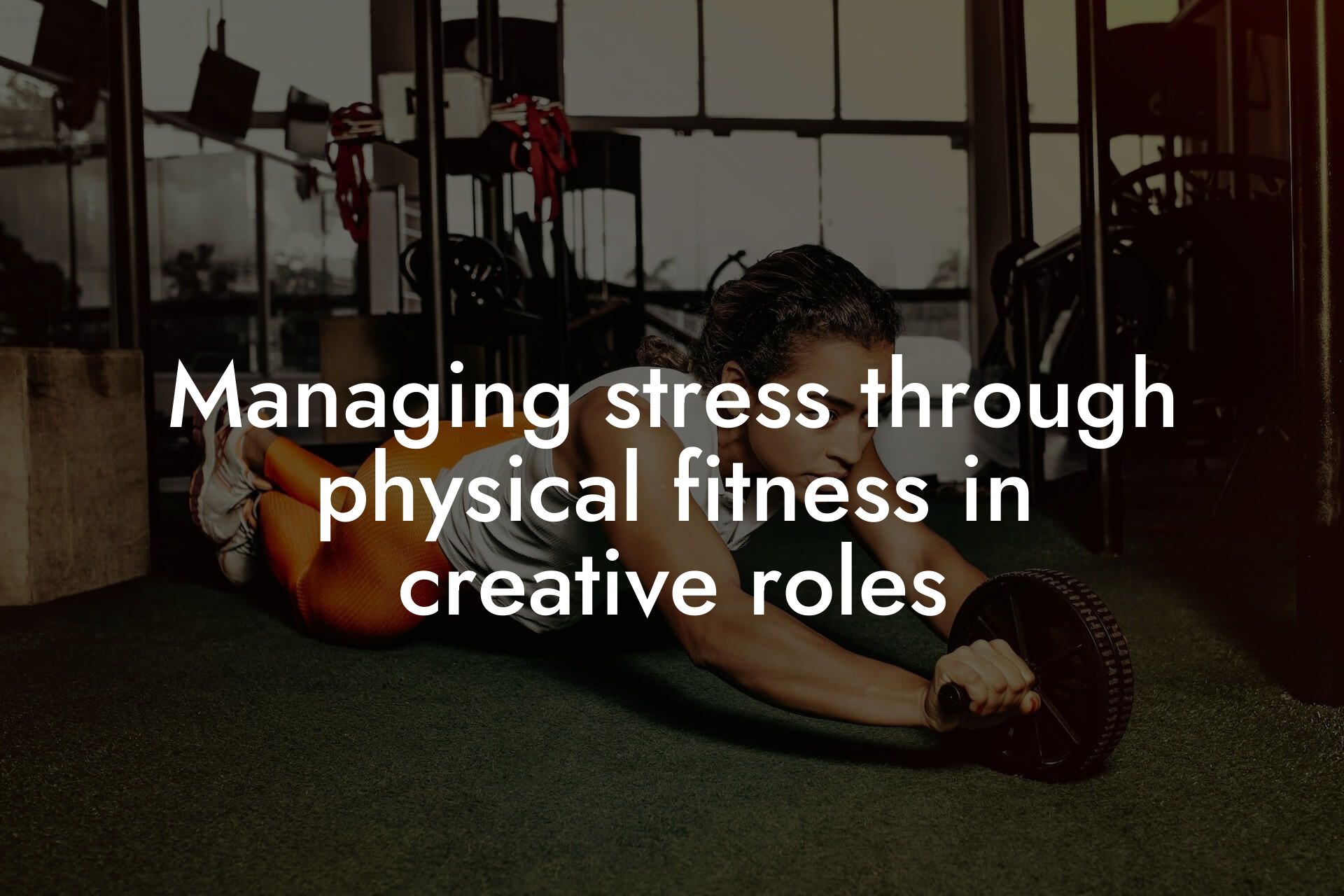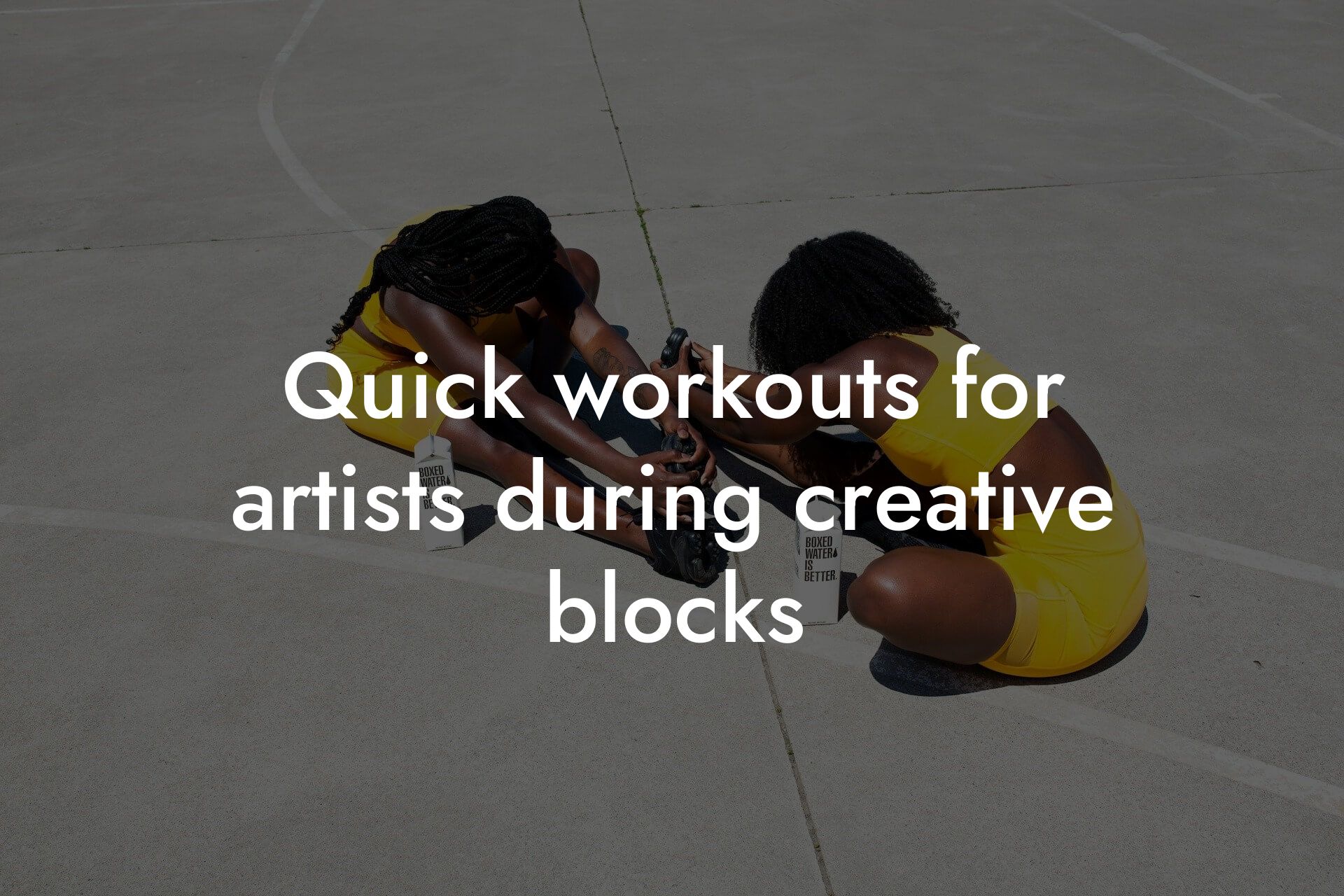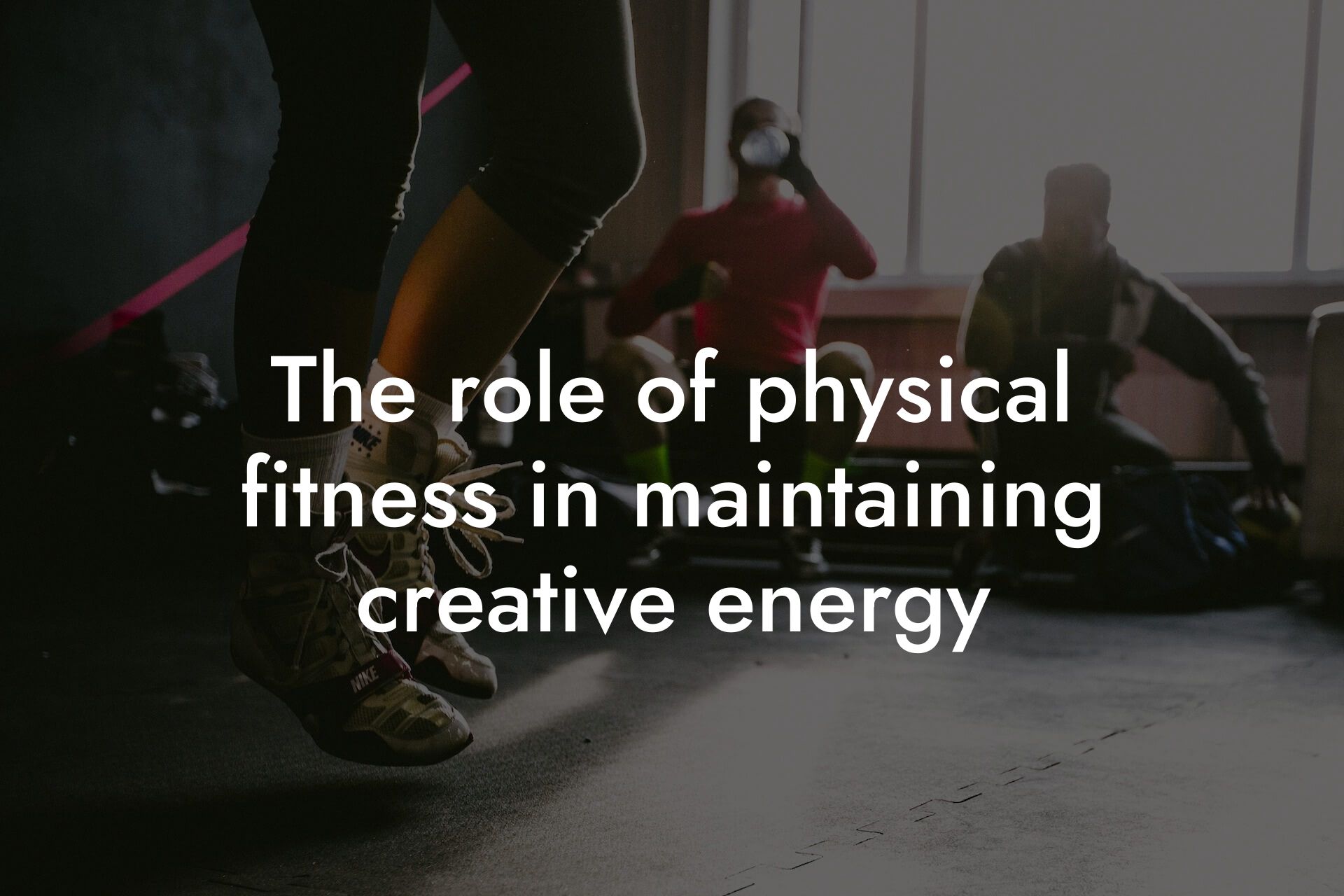As a high-earning professional, you understand the importance of maintaining a healthy and productive lifestyle to stay ahead in your field. One crucial aspect of achieving this is fueling your body with the right nutrition to support your creative work. A well-nourished brain is essential for optimal cognitive function, focus, and innovation. In this article, we'll delve into the nutrition strategies that can help you unlock your full creative potential.
Table of Contents
- The Importance of Nutrition for Creative Performance
- Macro-Nutrients for Creative Fueling
- Micro-Nutrients for Creative Enhancement
- Hydration for Creative Performance
- Meal Timing and Frequency for Creative Work
- Snacking for Creative Fueling
- Supplements for Creative Enhancement
- Putting it all Together: A Sample Meal Plan for Creative Professionals
- Frequently Asked Questions
The Importance of Nutrition for Creative Performance
When it comes to creative work, your brain is your most valuable asset. It's responsible for generating ideas, solving problems, and making connections. However, your brain is a high-energy organ that requires a constant supply of nutrients to function at its best. A diet that is deficient in essential nutrients can lead to decreased productivity, mental fatigue, and a lack of inspiration. On the other hand, a well-nourished brain can help you stay focused, motivated, and creative.
Macro-Nutrients for Creative Fueling
Macro-nutrients are the building blocks of nutrition, providing energy and support for your brain and body. The three main macro-nutrients are carbohydrates, protein, and fat. Here's how each one contributes to creative fueling:
Carbohydrates: Carbs are the primary source of energy for your brain. Focus on complex carbs like whole grains, fruits, and vegetables, which provide a slow release of energy and help maintain stable blood sugar levels.
Protein: Protein is essential for building and repairing brain cells. Include lean protein sources like fish, eggs, and legumes in your diet to support cognitive function and memory.
Fat: Fat is a critical component of brain structure and function. Focus on healthy fats like omega-3 fatty acids, found in fatty fish, nuts, and seeds, which support brain health and cognitive function.
Micro-Nutrients for Creative Enhancement
Micro-nutrients are vitamins and minerals that play a crucial role in supporting brain function and overall health. Here are some key micro-nutrients for creative enhancement:
Vitamin D: Vitamin D is essential for mood regulation and cognitive function. Spend time outdoors, take vitamin D supplements, or consume vitamin D-rich foods like fatty fish and fortified dairy products.
B Vitamins: B vitamins, particularly B6, B9, and B12, play a crucial role in synthesizing neurotransmitters and supporting brain function. Include B-rich foods like leafy greens, nuts, and whole grains in your diet.
Magnesium: Magnesium is essential for neuronal function and synaptic plasticity. Include magnesium-rich foods like dark leafy greens, nuts, and whole grains in your diet.
Hydration for Creative Performance
Hydration is critical for cognitive function and overall health. Dehydration can lead to decreased focus, mental fatigue, and decreased creativity. Here are some tips for staying hydrated:
Drink plenty of water: Aim for at least 8-10 glasses of water per day, and adjust according to your individual needs.
Monitor your urine output: If your urine is dark yellow or you're not urinating frequently enough, it may be a sign of dehydration.
Avoid sugary drinks: Sugary drinks can lead to energy crashes and decreased focus. Opt for water, herbal tea, or low-sugar juices instead.
Meal Timing and Frequency for Creative Work
Meal timing and frequency can significantly impact your creative performance. Here are some tips for optimizing your meal schedule:
Eat regular meals: Aim for 3-5 main meals and 2-3 snacks per day to maintain stable energy levels.
Incorporate breakfast: Breakfast is essential for kickstarting your metabolism and providing energy for the day ahead.
Avoid heavy meals: Eat light, balanced meals to avoid energy crashes and decreased focus.
Snacking for Creative Fueling
Snacking can be a great way to refuel and recharge during long creative sessions. Here are some healthy snack options:
Nuts and seeds: Almonds, cashews, pumpkin seeds, and chia seeds are all rich in healthy fats and protein.
Fresh fruits: Fresh fruits like berries, citrus fruits, and apples are rich in antioxidants and fiber.
Energy balls: Energy balls made with oats, nuts, and dried fruits are a healthy and convenient snack option.
Supplements for Creative Enhancement
While a balanced diet should always be the primary source of nutrition, certain supplements can help support creative function. Here are some supplements to consider:
Omega-3 fatty acids: Omega-3 supplements can help support brain health and cognitive function.
B vitamins: B vitamin supplements can help support energy metabolism and cognitive function.
Adaptogenic herbs: Adaptogenic herbs like ashwagandha and rhodiola can help support stress resilience and cognitive function.
Putting it all Together: A Sample Meal Plan for Creative Professionals
Here's a sample meal plan to help you get started:
Breakfast: Overnight oats with nuts and seeds, topped with fresh fruits
Lunch: Grilled chicken breast with quinoa and steamed vegetables
Snack: Apple slices with almond butter
Dinner: Baked salmon with sweet potato and green beans
Before bed snack: Warm milk with honey and a sprinkle of cinnamon
Remember, everyone's nutritional needs are unique, and this meal plan should be tailored to your individual requirements. Consult with a registered dietitian or healthcare professional to create a personalized meal plan that suits your needs.
By incorporating these nutrition strategies into your daily routine, you'll be well on your way to fueling your creative work and achieving optimal performance. Remember to stay hydrated, listen to your body, and adjust your nutrition plan as needed. With the right fuel, you'll be able to unlock your full creative potential and take your business to the next level.
Frequently Asked Questions
What is the importance of nutrition for creative work?
Nutrition plays a vital role in fueling creative work. A well-nourished brain is more focused, productive, and innovative, leading to better output and increased creativity. A diet rich in essential nutrients, vitamins, and minerals helps to support cognitive function, memory, and mood, all of which are crucial for creative tasks.
How does nutrition impact cognitive function?
Nutrition has a direct impact on cognitive function, including attention, concentration, and problem-solving skills. A diet that is deficient in essential nutrients can impair cognitive function, leading to decreased productivity and creativity. On the other hand, a balanced diet that includes foods rich in omega-3 fatty acids, antioxidants, and other essential nutrients can support and improve cognitive function.
What are the key nutrients for creative work?
The key nutrients for creative work include omega-3 fatty acids, vitamin D, magnesium, and antioxidants. These nutrients support brain health, cognitive function, and mood, all of which are essential for creative tasks. Foods rich in these nutrients include fatty fish, nuts, seeds, leafy greens, and whole grains.
How can I maintain energy levels throughout the day?
Maintaining energy levels throughout the day is crucial for creative work. To do this, focus on eating a balanced diet that includes complex carbohydrates, lean protein, and healthy fats. Avoid sugary and processed foods that can cause energy crashes. Additionally, stay hydrated by drinking plenty of water throughout the day.
What are the best snacks for creative work?
The best snacks for creative work are those that provide a boost of energy and support cognitive function. Some examples include nuts and seeds, dried fruits, energy bars, and trail mix. Avoid sugary and processed snacks that can cause energy crashes and decreased productivity.
How can I stay focused and avoid distractions?
To stay focused and avoid distractions, it's essential to eat a balanced diet that includes foods rich in omega-3 fatty acids, antioxidants, and other essential nutrients. Additionally, stay hydrated by drinking plenty of water throughout the day. Avoid sugary and processed foods that can cause energy crashes and decreased focus.
What is the role of hydration in creative work?
Hydration plays a critical role in creative work. Dehydration can lead to decreased focus, productivity, and creativity, while proper hydration can improve cognitive function and overall performance. Aim to drink at least eight glasses of water per day, and avoid sugary and caffeinated drinks that can dehydrate the body.
How can I manage stress and anxiety through nutrition?
Nutrition can play a significant role in managing stress and anxiety. Focus on eating a balanced diet that includes foods rich in omega-3 fatty acids, antioxidants, and other essential nutrients. Avoid sugary and processed foods that can exacerbate stress and anxiety. Additionally, consider incorporating adaptogenic herbs and spices, such as ashwagandha and turmeric, into your diet.
What are the best foods for brain health?
The best foods for brain health include fatty fish, nuts, seeds, leafy greens, and whole grains. These foods are rich in essential nutrients, vitamins, and minerals that support cognitive function, memory, and mood.
How can I support my gut health through nutrition?
Gut health is closely linked to brain health, and supporting gut health through nutrition is essential for creative work. Focus on eating a balanced diet that includes foods rich in fiber, probiotics, and prebiotics. Avoid sugary and processed foods that can disrupt gut health.
What is the role of sleep in creative work?
Sleep plays a critical role in creative work. During sleep, the brain processes and consolidates information, and a lack of sleep can lead to decreased productivity, creativity, and focus. Aim for 7-9 hours of sleep per night, and establish a consistent sleep schedule to support creative work.
How can I stay motivated and inspired?
To stay motivated and inspired, it's essential to eat a balanced diet that includes foods rich in essential nutrients, vitamins, and minerals. Additionally, stay hydrated, get enough sleep, and engage in regular exercise to support cognitive function and overall well-being.
What are the benefits of meal planning for creative work?
Meal planning can be a game-changer for creative work. By planning and preparing healthy meals in advance, you can save time, increase productivity, and support cognitive function. Meal planning can also help to reduce stress and anxiety, leading to improved overall well-being.
How can I incorporate nutrition into my busy schedule?
Incorporating nutrition into a busy schedule can be challenging, but there are several strategies that can help. Focus on meal planning, prep, and portioning to save time and increase productivity. Additionally, consider incorporating nutrient-dense snacks and smoothies into your diet to support cognitive function and overall well-being.
What are the best foods for energy and focus?
The best foods for energy and focus include foods rich in complex carbohydrates, lean protein, and healthy fats. Some examples include whole grains, nuts, seeds, and fatty fish. Avoid sugary and processed foods that can cause energy crashes and decreased focus.
How can I support my immune system through nutrition?
Nutrition plays a critical role in supporting immune function. Focus on eating a balanced diet that includes foods rich in vitamins C and D, zinc, and other essential nutrients. Avoid sugary and processed foods that can weaken immune function.
What is the role of exercise in creative work?
Exercise plays a critical role in creative work. Regular exercise can improve cognitive function, boost mood, and increase productivity. Aim for at least 30 minutes of moderate-intensity exercise per day, and incorporate activities that bring you joy and fulfillment.
How can I stay organized and productive?
To stay organized and productive, focus on eating a balanced diet that includes foods rich in essential nutrients, vitamins, and minerals. Additionally, stay hydrated, get enough sleep, and engage in regular exercise to support cognitive function and overall well-being. Consider incorporating productivity tools and apps into your daily routine to stay organized and focused.
What are the benefits of mindfulness in creative work?
Mindfulness can be a powerful tool in creative work. By staying present and focused, you can increase productivity, creativity, and overall well-being. Incorporate mindfulness practices, such as meditation and deep breathing, into your daily routine to support creative work.
How can I overcome creative blocks and plateaus?
Overcoming creative blocks and plateaus requires a combination of nutrition, exercise, and mindfulness. Focus on eating a balanced diet that includes foods rich in essential nutrients, vitamins, and minerals. Stay hydrated, get enough sleep, and engage in regular exercise to support cognitive function and overall well-being. Additionally, incorporate mindfulness practices into your daily routine to stay focused and inspired.
What are the best foods for mood and motivation?
The best foods for mood and motivation include foods rich in omega-3 fatty acids, vitamin D, and other essential nutrients. Some examples include fatty fish, nuts, seeds, and whole grains. Avoid sugary and processed foods that can exacerbate stress and anxiety.
How can I support my overall well-being through nutrition?
Nutrition plays a critical role in overall well-being. Focus on eating a balanced diet that includes foods rich in essential nutrients, vitamins, and minerals. Avoid sugary and processed foods that can weaken immune function and exacerbate stress and anxiety. Incorporate nutrient-dense snacks and smoothies into your diet to support cognitive function and overall well-being.
Here are some related articles you might love...
- Managing stress through physical fitness in creative roles
- Quick workouts for artists during creative blocks
- The role of physical fitness in maintaining creative energy
- How artists can stay fit during long studio sessions
- Balancing artistic work with personal fitness goals
- How to maintain bone density in sedentary artistic jobs
- How DEXA scans can benefit creative professionals
- The impact of body composition on creative performance
- The connection between physical health and creative output
Zak Faulkner
Zak Faulkner is a leading authority in the realm of physical health and body composition analysis, with over 15 years of experience helping professionals optimise their fitness and well-being. As one the experts behind Tano Performance Group, Zak has dedicated his career to providing in-depth, science-backed insights that empower clients to elevate their physical performance and overall health.
With extensive knowledge of DEXA technology, Zak specializes in delivering comprehensive body assessments that offer precise data on body fat, muscle mass, bone density, and overall physique. His expertise enables individuals to make informed decisions and achieve their fitness goals with accuracy and confidence. Zak’s approach is rooted in a deep understanding of human physiology, combined with a passion for helping clients unlock their full potential through personalised strategies.
Over the years, Zak has earned a reputation for his commitment to excellence, precision, and client-focused service. His guidance is trusted by top professionals who demand the best when it comes to their health. Whether advising on fitness programs, nutritional strategies, or long-term wellness plans, Zak Faulkner’s insights are a valuable resource for anyone serious about taking their health and fitness to the next level.
At Tano Performance Group, Zak continues to lead our Content Team revolutionising how professionals approach their physical health, offering unparalleled expertise that drives real results.




